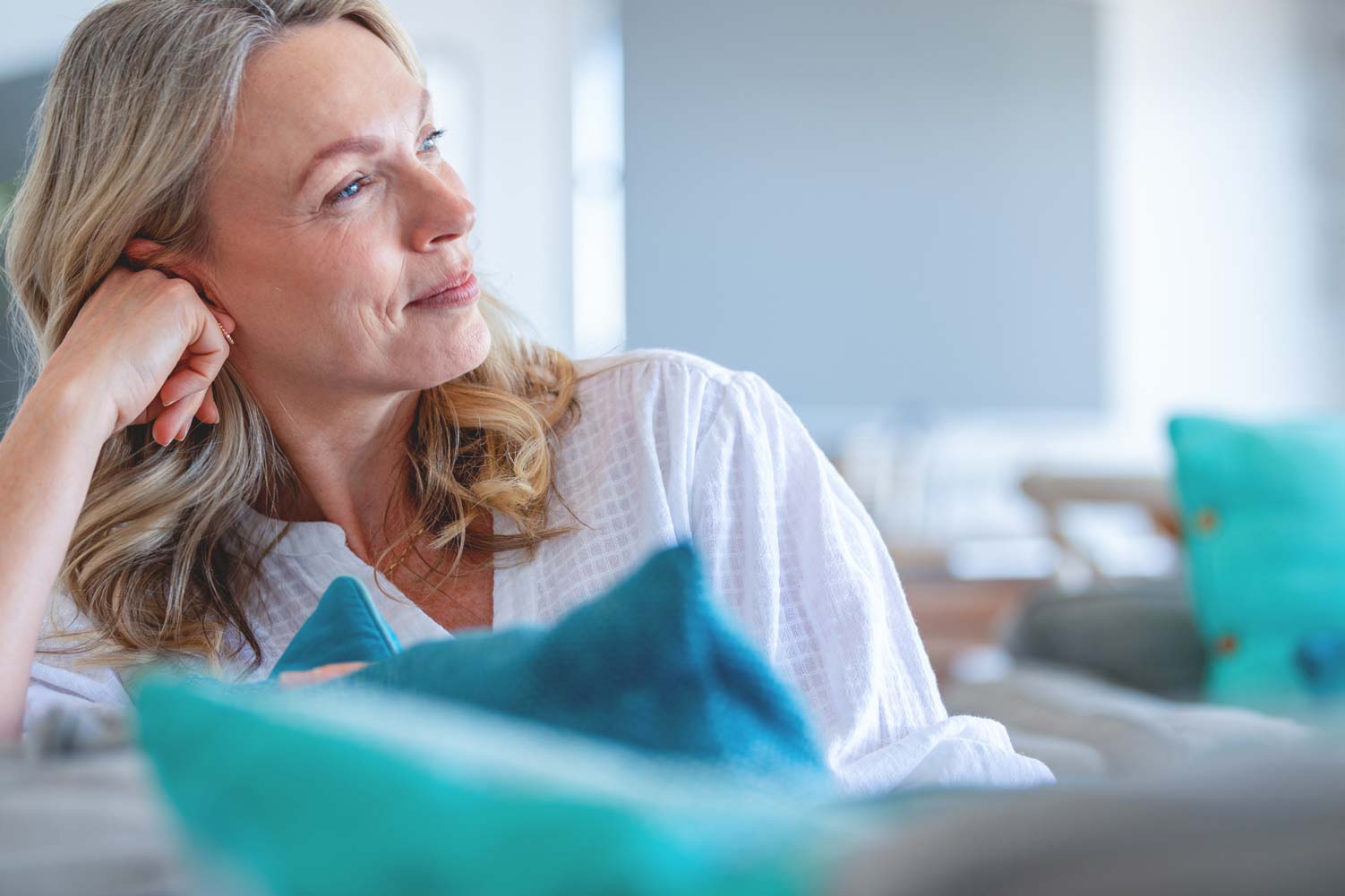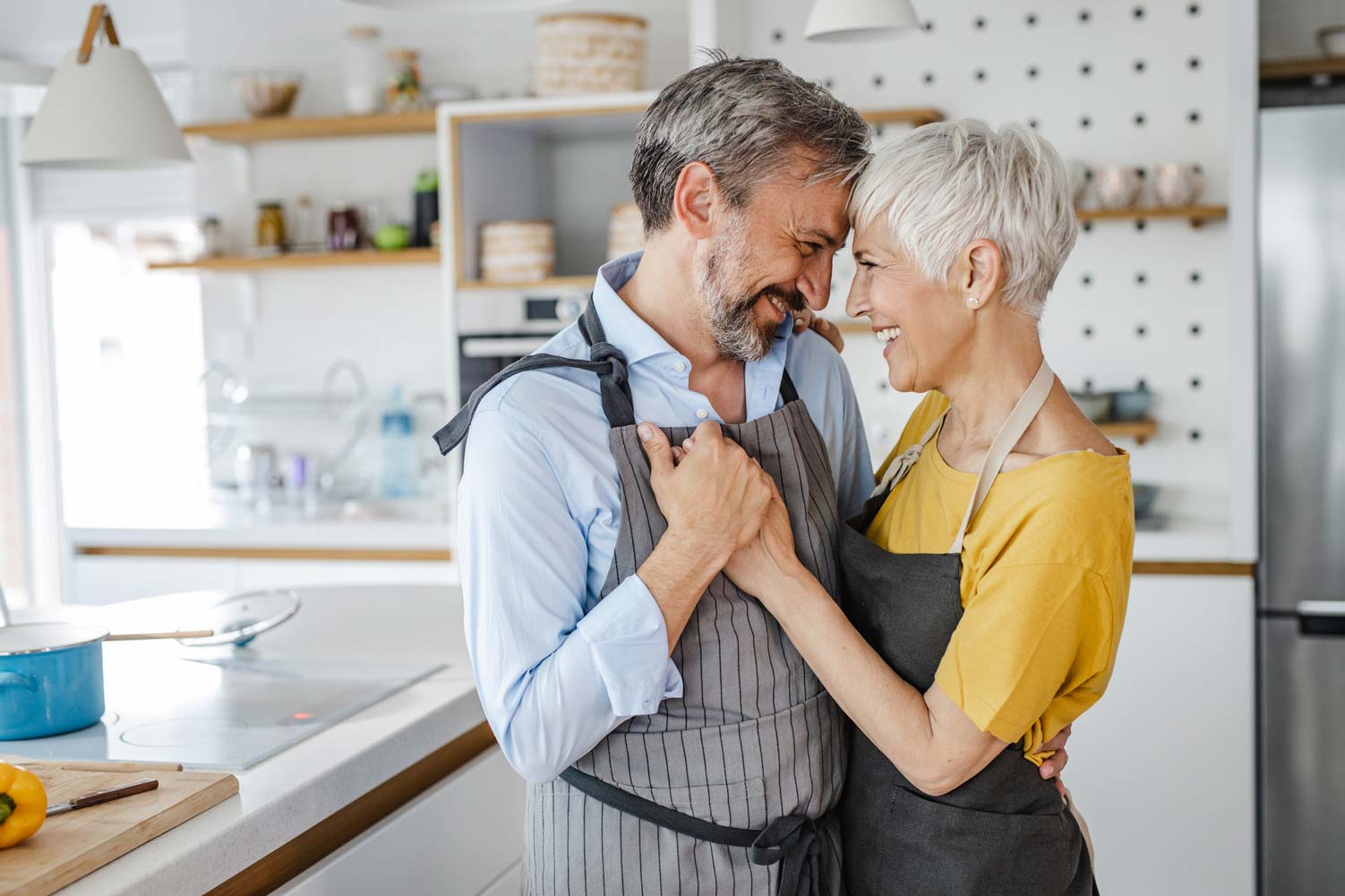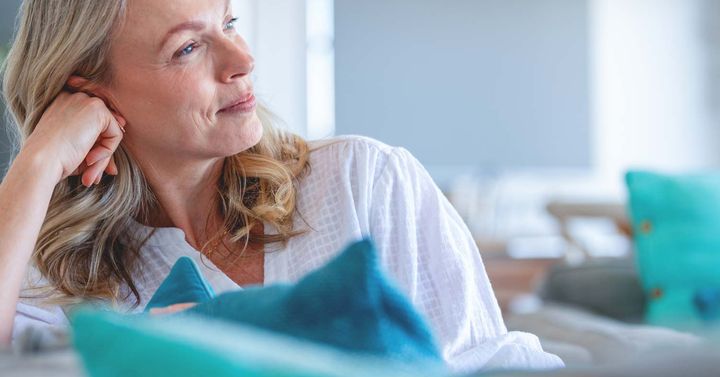From 45 to 55: menopause and adapting to a new transformation
As women, we know what it means to live in constant evolution. But few stages transform us as much, on so many levels, as menopause. Between the ages of 45 and 55, we go through a profound transition that affects our bodies, our emotions, and our identity. It is the moment when we stop menstruating and officially enter a new phase of life. But far from being the end of something, menopause can be the beginning of a stage of fulfilment if we learn to understand it, accompany it, and take care of ourselves with what we truly need.
What is menopause?
Menopause is defined as the permanent cessation of menstruation, diagnosed retrospectively after 12 consecutive months without a period. The average age at which it occurs in Spain is 50. It is a natural biological milestone, but not always an easy one. It involves a marked decrease in oestrogen and progesterone levels, triggering a cascade of physical, emotional and metabolic changes.
Many of us arrive at this stage carrying a heavy load: motherhood, work, family, caring for others, life changes. That is why, now more than ever, it is time to look after ourselves, to take care of ourselves, to prioritise ourselves.

What symptoms may appear?
Every body is different, but there are a number of common symptoms in this phase that many of us share:
-
Hot flushes and night sweats: up to 80% of women experience them.
-
Sleep disturbances: difficulty falling asleep or staying asleep, frequent awakenings.
-
Mood and emotional changes: anxiety, irritability, apathy, sadness.
-
Brain fog: loss of concentration, difficulty making decisions or remembering things.
-
Vaginal dryness and discomfort during sexual intercourse.
-
Decreased sexual desire.
-
Weight gain and changes in body fat distribution.
-
Joint pain, loss of muscle mass, increased feeling of tiredness.
-
Increased susceptibility to urinary tract infections.
-
Loss of bone mass (osteoporosis).
Not all of us experience all the symptoms, nor with the same intensity. But it is common for us to feel different. That something no longer fits as it used to. And that deserves attention.
What can we do?
The good news is that we have many tools to help us live this stage of life with well-being. The first thing is to understand that we are not alone, that there is an explanation for what we feel, and that we can make informed decisions to take care of ourselves.
A self-care routine adapted to this new reality is key. This includes:
-
Conscious nutrition, rich in calcium, vitamin D, protein and fibre.
-
Regular exercise, especially strength training to preserve muscle and bone mass.
-
Emotional management, with psychological support if needed.
-
Restful sleep, as the cornerstone of hormonal and emotional balance.
-
Regular medical check-ups, especially cardiovascular monitoring, bone densitometry and gynaecological health.
And, of course, specific supplementation, which can be a great ally in reducing discomfort and preventing complications.
Orissens partners for this stage
The Orissens Woman range includes products specifically designed to accompany us during the menopause:
-
Orissens Woman Menopausia: Specifically formulated to alleviate menopausal symptoms such as hot flushes, mood swings, insomnia and irritability. It is a great ally from the first signs of hormonal imbalance.
-
Orissens Woman Vitazen Triptófano: For those moments when your spirits are low, stress is mounting, or you feel your emotional energy fading.
-
Orissens Sueño Forte: Ideal when insomnia begins to interfere with our routine. It helps restore regular, restful sleep without causing drowsiness during the day.
-
Orissens Woman Íntima Balance and Orissens Woman Cistibalance Forte: They help regulate the vaginal flora and urinary mucosa, which can cause discomfort due to thinning of the vaginal mucosa.
-
Orissens Articulaciones Colágeno Forte y Orissens Cannabis PEA Forte: Recommended if we begin to experience joint discomfort, muscle fatigue, or generalised pain.
-
Orissens Woman Piernas Ligeras (oral y crema): For those who suffer from heaviness, swelling or circulatory problems.
To speak of menopause is to speak of power
For a long time, this stage was experienced in silence. As if we had to accept the discomfort with resignation. But things are changing. Today we want — and demand — to talk about the menopause naturally, without shame or taboos. We want to know what is happening to us and how to deal with it. We want to feel supported, understood and respected.
Because we are not just smaller versions of men; we are women, and we are different. Our health does not follow the same pattern as men's. And that does not make us more complicated: it makes us unique!

Live longer... and better
The life expectancy of Spanish women exceeds 87 years. This means that we spend more than a third of our lives in the postmenopausal stage. Therefore, taking good care of ourselves during this decade is an investment in long-term well-being.
We deserve to experience this transformation with vitality, clarity and joy. It is not a time of loss, but of reconnection. And every act of self-care is a way of saying to ourselves: I am here for me.
Because it's not just about living longer. It's about living better. And that starts today. Shall we accompany you?


/assets/orissens/logo_black.png)
/1200x900/categories/e5ab714cec96318818ebb280ebb44565/articulaciones-67c5c282bfd987.68705266.png)
/1200x900/categories/e5ab714cec96318818ebb280ebb44565/circulatorio-67acfbaa816393.75945444.png)
/1200x900/categories/e5ab714cec96318818ebb280ebb44565/defensas-respiratorio-67acfd555def67.16060958.png)
/1200x900/categories/e5ab714cec96318818ebb280ebb44565/silueta-67acfdd91a9032.04521369.png)
/1200x900/categories/e5ab714cec96318818ebb280ebb44565/salud-hormonal-67acfd9fed13a1.58527156.png)
/1200x900/categories/e5ab714cec96318818ebb280ebb44565/salud-intima-67acfdb21a7d82.06710308.png)
/1200x900/categories/e5ab714cec96318818ebb280ebb44565/energia-fisica-mental-67acfd7b28eb35.87929128.png)
/1200x900/categories/e5ab714cec96318818ebb280ebb44565/sueno-relax-67acfdec6cc222.29822928.png)
/1200x900/categories/e5ab714cec96318818ebb280ebb44565/salud-urinaria-67acfdc3722a44.05094273.png)